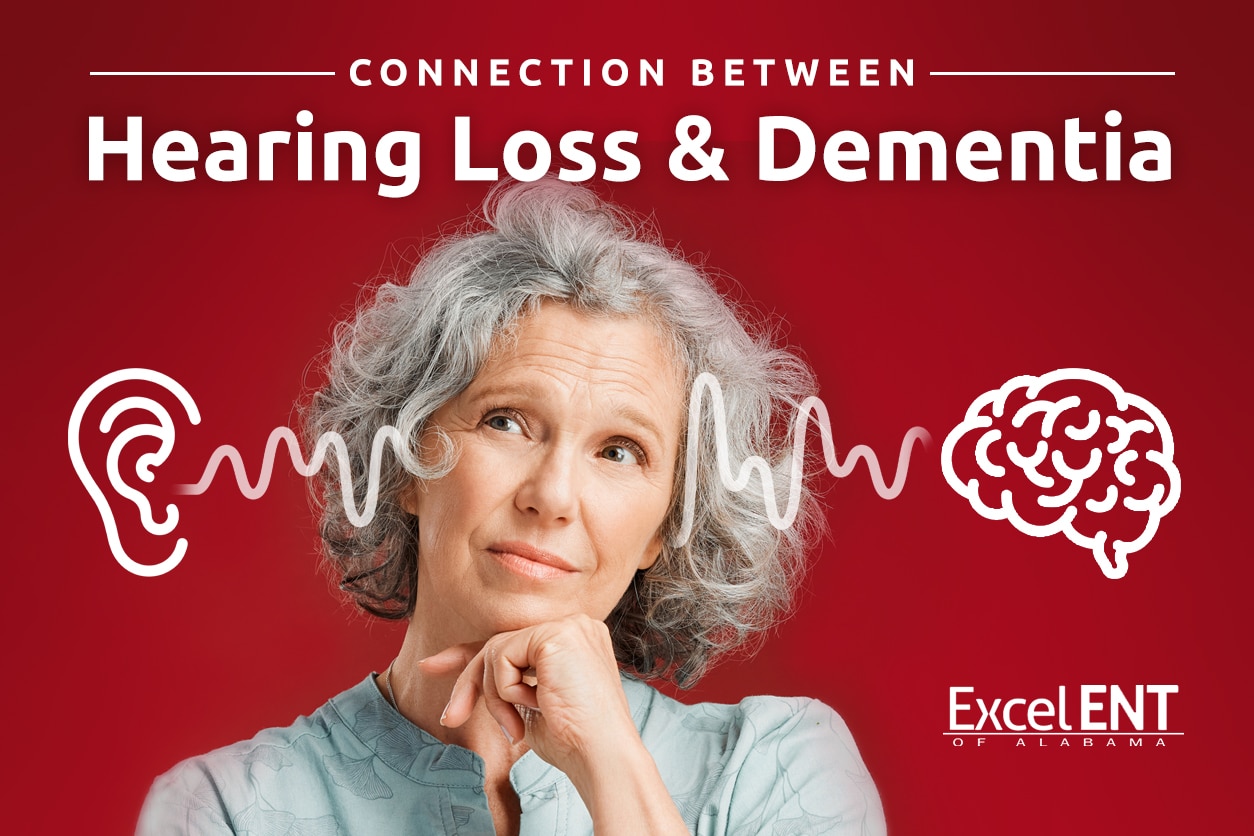In this provider spotlight, we’re featuring Stephanie Hill, RN, MSN, CRNP, a nurse practitioner at…

Is There a Link Between Hearing Loss and Dementia Risk?
You’re sitting in a crowded restaurant with friends. The clinking of glasses and background chatter blur together, and you find yourself nodding along even though you’ve missed half the conversation. Later that evening, you replay the night in your head and realize you barely followed what was said. You tell yourself it’s just a little hearing trouble, nothing serious.
But what if ignoring those moments could quietly be putting your brain at risk?
Most people fear dementia more than they fear hearing loss. We worry about losing memories, independence, and identity. Yet we often brush off hearing difficulties as an inevitable part of aging, something to tolerate rather than treat.
Recent research shows that this dismissal might come at a cost: untreated hearing loss and cognitive decline are closely linked, with mounting evidence showing that dementia risk rises when hearing problems go untreated.
The Overlooked Connection Between Hearing and the Brain
Hearing is obviously about the ears, but it’s also about the brain. When sound waves enter your ears, your brain works to decode them into words, meaning, and context. If your ears aren’t delivering clear signals, your brain has to fill in the gaps. That extra effort might seem harmless at first, but over time, it takes a toll.
Researchers now understand three major ways untreated hearing loss may contribute to dementia:
1. Cognitive Overload
When the brain works harder to process muffled or missing sounds, fewer resources remain for memory and higher-level thinking. It’s like constantly running your computer with too many tabs open; it slows down everything else.
2. Brain Structure Changes
MRI studies reveal that people with hearing loss often show faster brain shrinkage in areas responsible for processing sound and memory. This physical change suggests that when hearing declines, the brain’s wiring can deteriorate more quickly.
3. Social Isolation
Hearing loss makes conversations frustrating. Many people withdraw from social situations, leading to loneliness and reduced mental stimulation, both well-known risk factors for cognitive decline.
What the Research Tells Us
The link between hearing loss and dementia isn’t just speculation; it’s backed by large-scale studies.
- A landmark study from Johns Hopkins researchers found that even mild hearing loss doubled the risk of dementia, while moderate loss tripled it, and severe loss made dementia five times more likely.
- Another study published in The Lancet identified hearing loss as the single largest modifiable risk factor for dementia—more significant than smoking, high blood pressure, or lack of exercise.
- Researchers also noted that people who used hearing aids showed slower rates of cognitive decline than those who ignored their hearing loss.
The evidence is clear: ignoring hearing difficulties doesn’t just affect how well you hear; it affects how well your brain ages.
Early Signs That Hearing Loss May Be Affecting You
Hearing loss can be subtle, especially in the early stages. Many people wait years before seeking help, which is precious time lost in protecting cognitive health. Watch for these red flags:
- Frequently asking others to repeat themselves
- Turning up the TV or phone volume higher than others prefer
- Struggling to follow group conversations or conversations in noisy settings
- Feeling mentally drained after social interactions
- Avoiding gatherings because listening feels too exhausting
If any of these sound familiar, your ears may not be the only part of your health at risk; your brain could be affected, too.
Why Hearing Loss Is Often Ignored
If hearing loss carries such serious risks, why don’t more people act quickly? The reasons are complex:
- Stigma: Many associate hearing aids with old age or disability, so they delay seeking help.
- Gradual Onset: Hearing loss often progresses slowly, making it easy to dismiss.
- Lack of Awareness: Few people realize that untreated hearing loss is directly tied to dementia risk.
Despite the strong evidence linking hearing loss and dementia, many people still hesitate to take action. This hesitation isn’t usually about denial but is rather rooted in how hearing loss is perceived and experienced over time. Understanding these barriers helps explain why so many delay getting the help that could protect both their hearing and their brain.
Reframing the Conversation: From Fear to Empowerment
Here’s the truth: while we cannot change every risk factor for dementia, hearing loss is one we can address. Treating hearing loss is not just about hearing better today. It’s about protecting your memory, relationships, and independence for tomorrow.
Hearing devices today are discreet, powerful, and effective. More importantly, studies show that people who use them not only stay engaged in life but also protect their cognitive health. Instead of seeing hearing care as optional, we can begin to view it as brain care.
Protect Your Brain & Hearing with ExcelENT of Alabama
If you’ve been brushing off hearing trouble as not that bad, it may be time to reconsider. Treating hearing loss is an investment in clearer conversations and a proactive step in protecting your brain against cognitive decline and dementia.
At ExcelENT of Alabama, our specialists understand how deeply these concerns affect patients. Many people come to us not just because they want to hear better, but because they want to stay sharp, independent, and fully engaged in life. By offering advanced diagnostic tools and a wide range of hearing solutions, we help patients take control of their hearing and their brain health.
Don’t wait until memory loss becomes a fear realized. Schedule a consultation with us today to address your hearing loss now and protect your future self.


